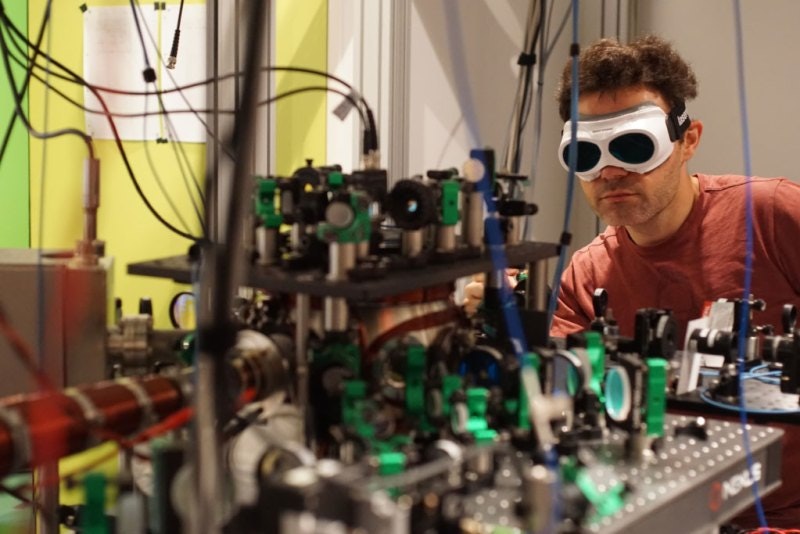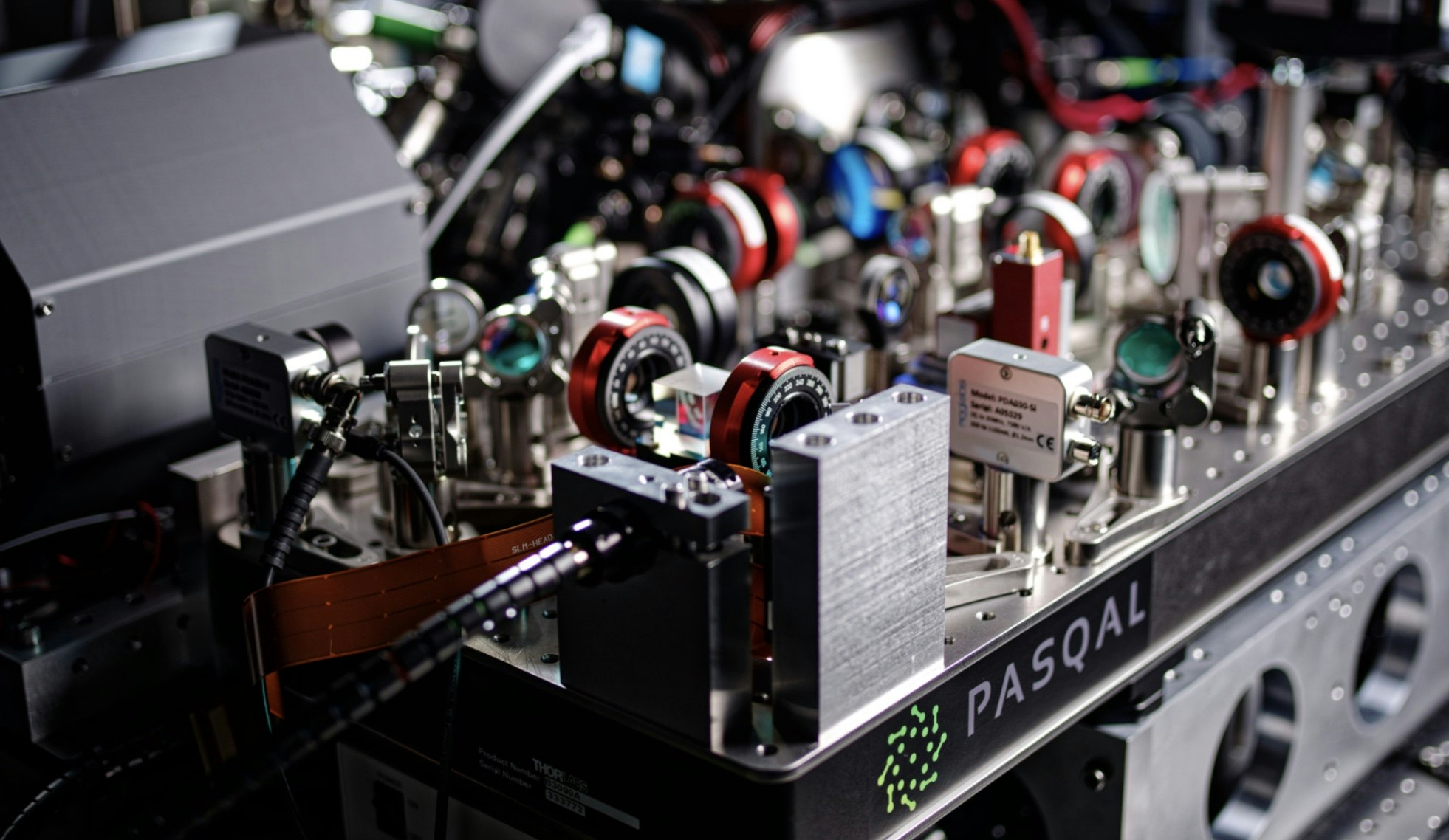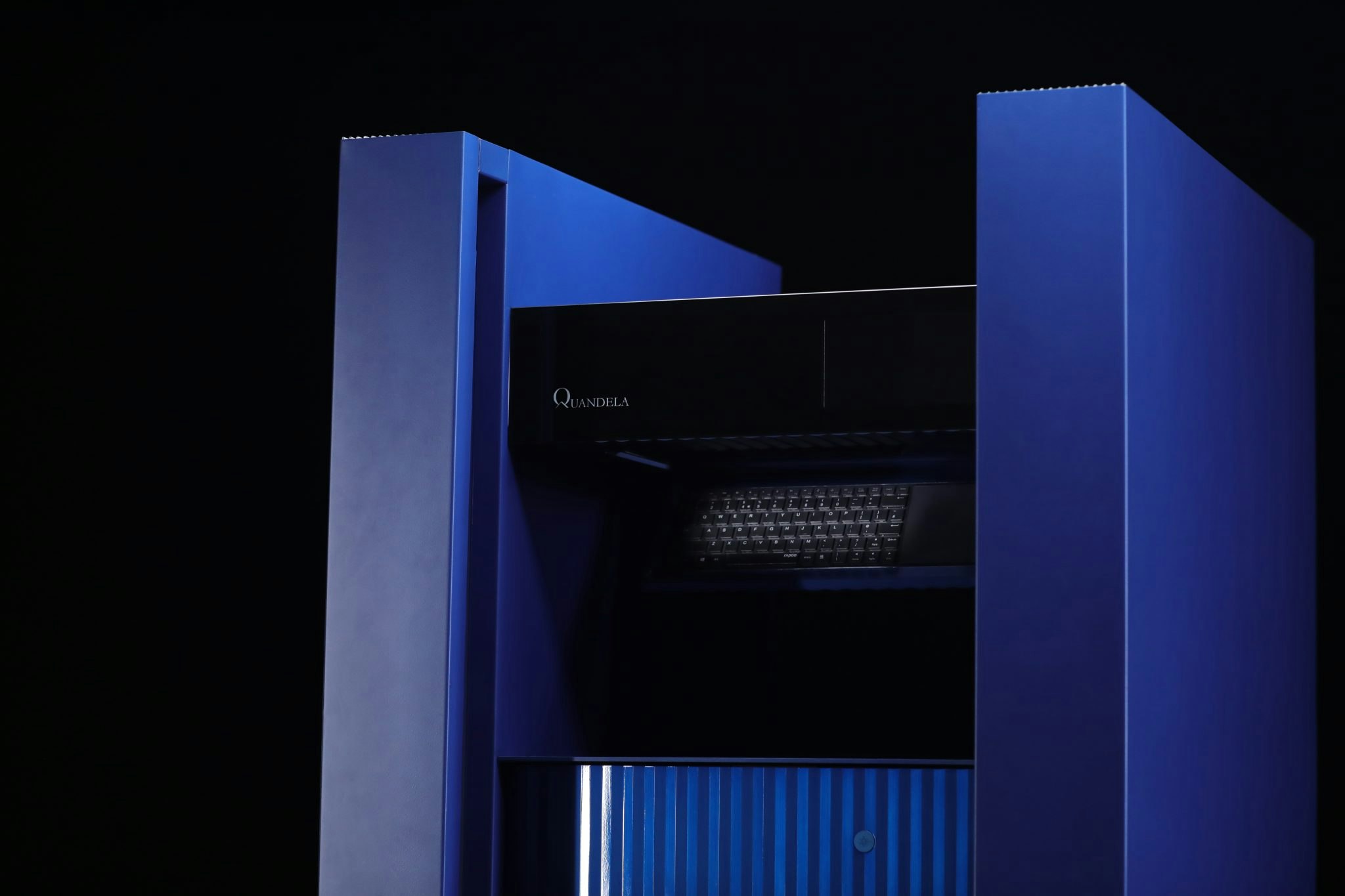The number of VC-funded quantum startups in Europe is growing fast, with many making bold claims that their technology could one day revolutionise the world economy. Yet it's still difficult to answer one fundamental thing: what can quantum computers actually do?
For now, the quantum computing industry remains in what's known as the NISQ era — Noisy Intermediate Scale Quantum — in which error rates and the limited size of quantum processors significantly limit the power of quantum computers. A fully fledged quantum computer, which would be able to solve complex calculations unmanageable for today’s supercomputers, is still years away.
But the biggest industries — think finance or pharmaceuticals — are waiting for a large-scale, fault-tolerant quantum computer to be unveiled to find out what use they could make of it. In partnership with quantum companies, many are already identifying use cases that could benefit from quantum computing and developing the algorithms to enable them.
We’ve collected the most promising so far.
Quantum in the NISQ era
But first, it’s important to lay out how quantum is being applied in our current pre-breakthrough era. Quantum applications usually involve combining the capabilities of classical and quantum computing into what are known as hybrid algorithms — quantum algorithms in which part of the computational workflow is delegated to a classical processor. In another approach, classical algorithms simulate the behaviour of a quantum system on a classical processor. These are called quantum-inspired algorithms.
For some use cases, these models are already showing an advantage over purely classical methods — although not a considerable one. But the value is in the exploration process.

“The speed with which an enterprise is able to adopt quantum is heavily dependent on testing these methods today,” says Ekaterina Almasque, general partner at VC OpenOcean. “When quantum hardware reaches quantum advantage for a broad set of algorithms, these early gains will allow enterprises to leapfrog the competition with serious acceleration.”
Finance
Quantum technologies’ ability to run many calculations at once means that they're particularly suited to problems that require simulating scenarios with many different variables, or picking an optimal pathway from various options. This is relevant to a range of use cases in the financial sector.
Spanish quantum startup Multiverse Computing, for instance, has partnered with Spanish bank BBVA to improve the optimisation of investment portfolios. It's a well-known problem in finance that requires accounting for the impact of many external factors on the performance of assets. The experiment showed that Multiverse’s quantum-inspired methods sped up the calculation process and were able to maximise profitability while minimising risk.
Another use case in finance is options pricing. Swiss startup TerraQuantum is working with financial services company Cirdan Capital to use quantum-inspired algorithms to price a complex class of options called “exotic options” — a process usually carried out with mathematical operations based on market simulations. The startup says that first results have shown a 75% increase in pricing speed compared with traditional methods.
Financial organisations are also looking at quantum computing to improve credit risk analysis. French startup PASQAL, together with Multiverse, is working on a quantum approach for French bank Crédit Agricole to better anticipate credit rating downgrades in borrowers. Classical methods already exist for this problem but can't process the particularities of individual situations. The bank expects quantum algorithms to improve the efficiency of the process.
Pharmaceuticals
Drug design requires identifying the right drug target — the protein, DNA or RNA in the human body that causes a certain disease — and then developing the molecule that will most effectively and safely alter that target. With the almost limitless number of possible targets and molecules, finding the exact combination is a years-long, costly process still mostly based on trial and error.
Paris-based startup Qubit Pharmaceuticals uses hybrid quantum algorithms to create digital twins for drug molecules. These quantum-based models are capable of representing large numbers of molecular characteristics, meaning they can simulate how these molecules interact with other components and can predict their behaviour with a high degree of precision. This enables scientists to produce and study molecules digitally, instead of having to synthesise them. According to the company, the technology could eventually halve the time it takes to screen and select promising drug candidates, and divide the investment required by 10.
Weather forecasting
Weather forecasts, which rely on simulations based on data points taken from current weather conditions, are infamously error-prone. Predicting the weather with more accuracy would require painting an accurate picture of dozens of parameters and assessing how they interact — a model far too large for a standard computer.

Quantum computers’ ability to account for many different parameters could be game-changing. German chemical company BASF, for example, is applying PASQAL’s tech to its weather-modelling applications, with the aim of achieving quantum advantage over classical approaches in the near-term.
Battery design
Improving battery design means developing a next generation of devices that are more durable, safer and less expensive. Similarly to drug design, the key problem is pinning down the exact set of parameters that will lead to an improved material.
Finnish quantum startup IQM, which raised €128m last year for its climate-focused tech, says that quantum computers’ ability to accurately simulate chemical processes at an atomic level could enable the development of more efficient batteries. This is also the view of London-based Phasecraft, which develops quantum software that addresses battery modelling challenges. According to Phasecraft, quantum computers could model battery materials exponentially faster than standard devices.
Smarter power grids
Power grids are a vast network of sensors, communication infrastructure, data management systems and control mechanisms that need to be carefully coordinated and synchronised to deliver electricity to the network — an intricate and time-consuming task that quantum computers are well-suited to carry out more efficiently.
Multiverse has partnered with Spanish utility company Iberdrola to identify how quantum algorithms could optimise the management of power grids. The project is focusing on various use cases that require evaluating many different combinations. For example, the company is hoping that quantum algorithms can help determine optimal battery locations within the electrical network.
Routing optimisation
There are many factors that can influence the time it takes to get from point A to point B. Quantum algorithms are being developed to calculate how every possible route could be affected by every possible factor, to determine the most optimal path.

French startup Quandela, for instance, is working with multinational Thales to build a quantum algorithm that could optimise drone traffic. As the number of drones flying in urban areas increases, Thales anticipates that classical computers will soon be unable to account for all the parameters that impact trajectory. These range from drones' mechanical flight constraints to avoiding collisions with other drones, through accounting for areas where they're banned and preserving battery life. Quantum algorithms could model all of these factors to determine the optimal pathway for each individual drone.
Manufacturing
Predicting and detecting defective pieces in production lines has significant economic value for manufacturing, but remains hard because of the overwhelming amount of data that has to be accounted for to make such predictions. Multiverse and Bosch are developing quantum algorithms to create digital twins simulating the factory line to predict where supply chains are going to fail and optimise when and where maintenance is needed. Similarly, PASQAL and BMW have teamed up to use quantum algorithms that can simulate the formation of metallic pieces, with the objective of identifying defects and ensuring that parts conform to specifications.



